Environmental Science Major
If you dream of creating a more sustainable future, and making a difference – you’ve come to the right place.
The Environmental Science program at UNI explores challenges such as water quality, air quality, habitat diversity and a changing climate. But you won't just read about these topics – you’ll go out and experience them firsthand through field trips, internships and group excursions.
In addition, you can get involved in undergraduate research, working side-by-side with your professors on impactful research.
By the time our students graduate, they’re prepared to make their mark on the world – whether it’s a career in business, industry, government or beyond.
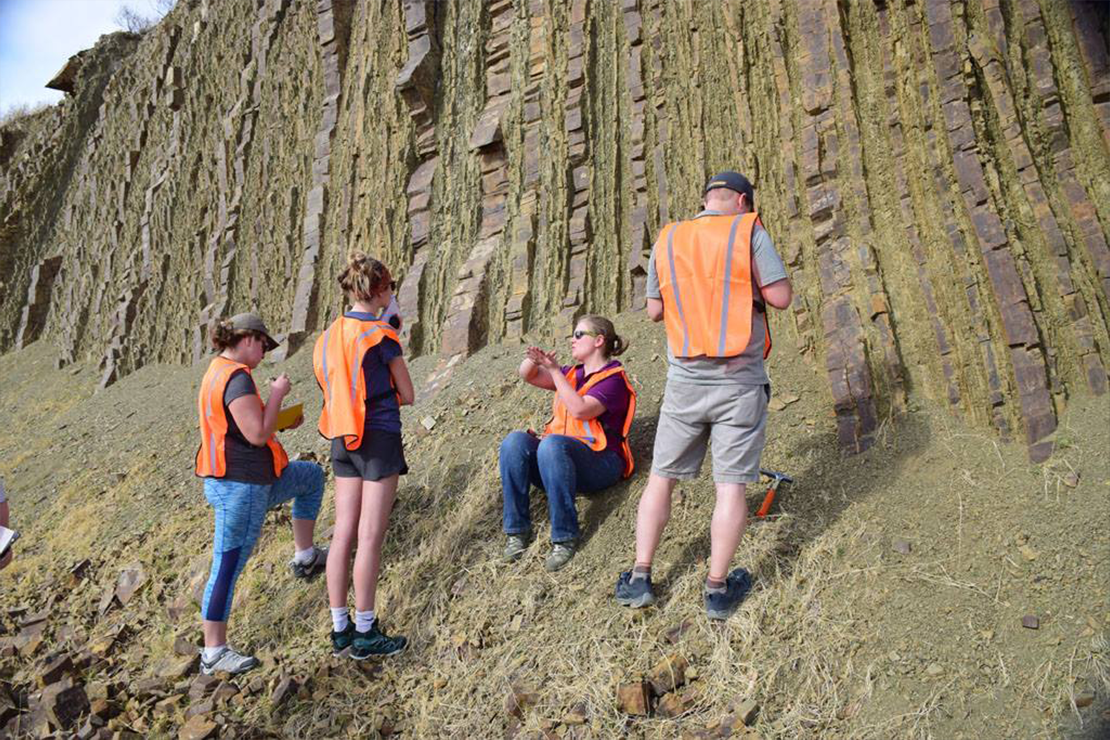

Award-winning professors
Our professors are recipients of numerous local, state and national awards for teaching, scholarship and service.

State-of-the-art equipment
Students have access to a variety of tools, including real-time weather monitoring equipment, a hydrology lab, specialized software and more.

Top-notch facilities
Home to the UNI Observatory and Planetarium, students gain hands-on learning experiences in our excellent facilities.
Find out More About Environmental Science
Fill out your information here and we'll be in touch!
Contact us directly at:
Department of Earth & Environmental Sciences
121 Latham Hall
University of Northern Iowa
Cedar Falls, IA
50614-0335
Phone: (319) 273-2759
Email: siobahn.morgan@uni.edu
Which degree is right for me?
Bachelor of Arts
An Environmental Science BA degree is usually for a student that intends to go immediately into industry or the public sector upon graduation. An Environmental Science BS degree is the path students follow if they plan on going onto graduate school in a geoscience or physical environment area of study. While these are the paths that students with those goals choose, it is still possible for a student in the BA program to go onto graduate school.
Bachelor of Science
The BS program requires more Biology, Chemistry, and Calculus. Students in the BA program can fulfill their experiential learning requirements by having an internship or an undergraduate research experience, while those in the BS program must have an undergraduate research experience. The BS program has two tracks – one focused on the physical environment and the other focused on the biological sciences – while the BA program is focused solely on the physical environment.
Hydrology Lab
The Hydrology Lab is capable of supporting the analytical needs of geology, earth science, biology and environmental science students in areas of water quality. The lab features state-of-the-art equipment including a DX-120 Ion Chromatography System with an AS40 auto-sampler and a workstation equipped with chromatography management system (CMS) software. The lab also has a fluorescence spectrometer for dye tracing in groundwater and a groundwater flow simulation system.
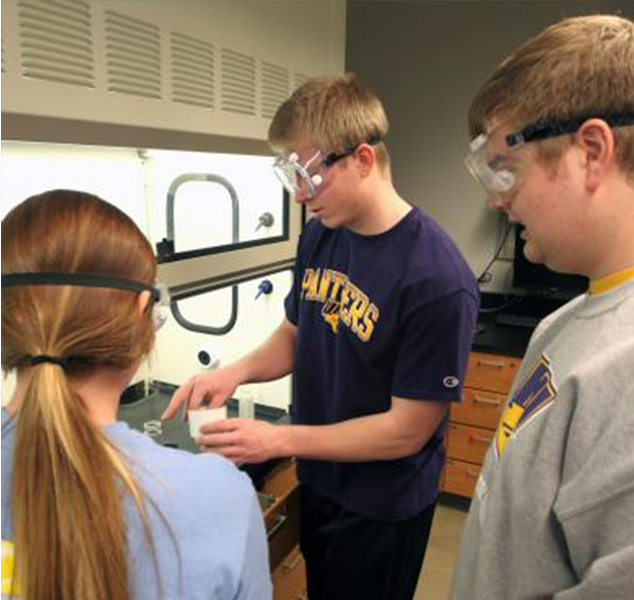
Carver Lab
Our department recently developed a new environmental analysis classroom and laboratory to support the growing environmental science program. The lab features industry-standard equipment and provides students the opportunity to work with faculty in environmental research.
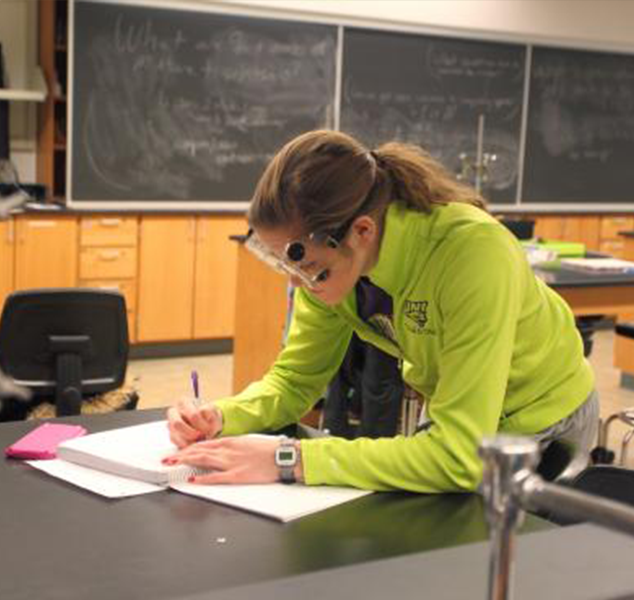
IGEIN
A collaborative effort between UNI, the Geological Society of Iowa and the Iowa Limestone Producers Association, the Iowa Geoscience Education Information Network (IGEIN) has been created for students to explore and learn from an online setting. The site contains information and opportunities geared toward assisting Iowa's teachers and students learn from Iowa's landscapes and geology.
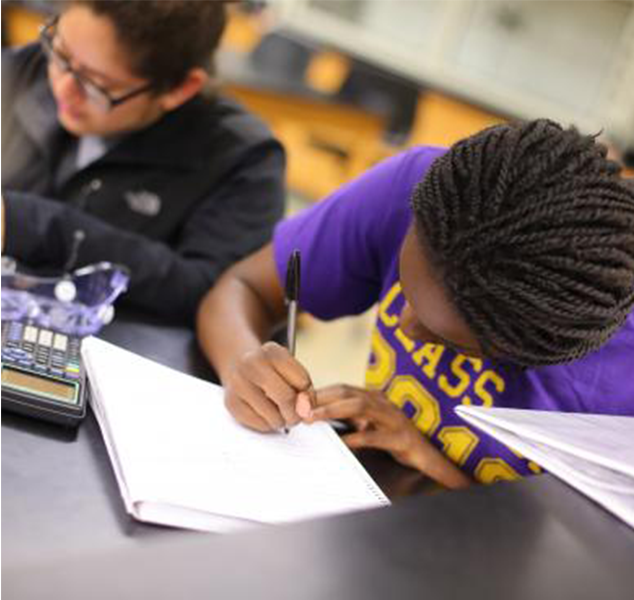
Hydrology Lab
The Hydrology Lab is capable of supporting the analytical needs of geology, earth science, biology and environmental science students in areas of water quality. The lab features state-of-the-art equipment including a DX-120 Ion Chromatography System with an AS40 auto-sampler and a workstation equipped with chromatography management system (CMS) software. The lab also has a fluorescence spectrometer for dye tracing in groundwater and a groundwater flow simulation system.

Carver Lab
Our department recently developed a new environmental analysis classroom and laboratory to support the growing environmental science program. The lab features industry-standard equipment and provides students the opportunity to work with faculty in environmental research.

IGEIN
A collaborative effort between UNI, the Geological Society of Iowa and the Iowa Limestone Producers Association, the Iowa Geoscience Education Information Network (IGEIN) has been created for students to explore and learn from an online setting. The site contains information and opportunities geared toward assisting Iowa's teachers and students learn from Iowa's landscapes and geology.

Careers
UNI's Environmental Science program will arm you with the skills needed to thrive in a variety of high-demand fields in both the public and private sectors. Common careers include:
- Park Ranger
- Natural Resource Management
- Water Quality
- Environmental Specialist
- Museum Programs Director
- Environmental Engineer
Courses
Our graduates stand out in the field – often literally. Our coursework focuses on on-site field experience, hands-on labs, and letting students learn by doing. Typical Environmental Science career track courses include:
- Environmental Biology
Explore topics in physiological ecology, community ecology, environmental microbiology, ecological genetics, bioenergetics, and biodiversity.
- Global Systems
Advanced topics in global systems for environmental science and technology. Topics include surface and groundwater hydrology, meteorology, atmospheric physics, and oceanography to gain an understanding of physical and geological processes that influence and are influenced by earth's biosphere.
- Environmental Health Science
Comprehensive survey of the interaction between human health and the quality and state of the natural environment.
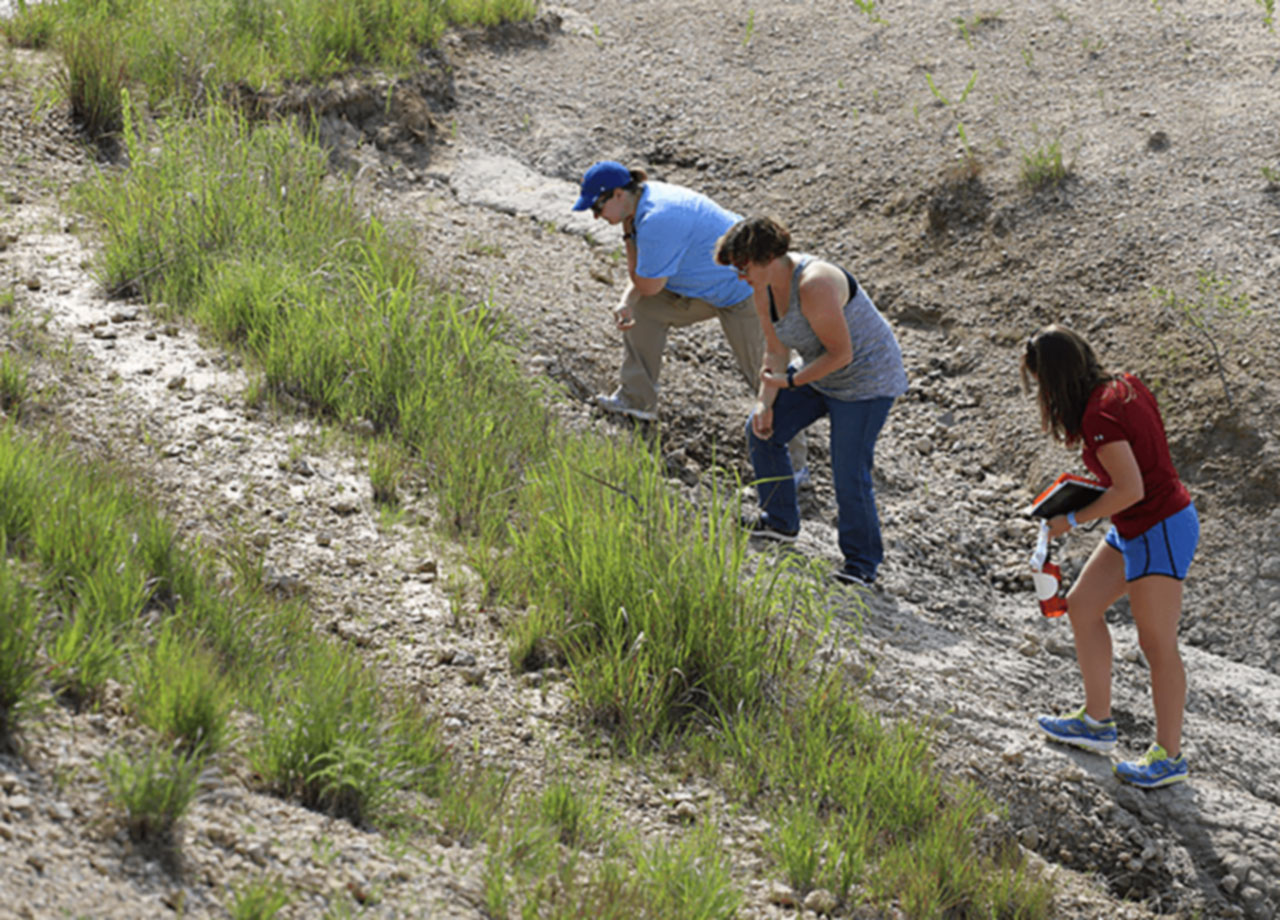
Hands-on Learning
Our style of learning is anything but textbook. In the UNI Department of Earth and Environmental Sciences, you'll learn by doing – whether it’s studying volcanic rocks in New Mexico, analyzing water quality in Colorado, or sampling soil here in the Cedar Valley. You’ll gain valuable experience through unique undergraduate research opportunities, and through group excursions and field experiences.
